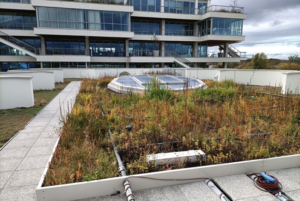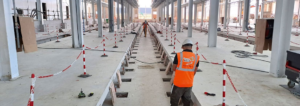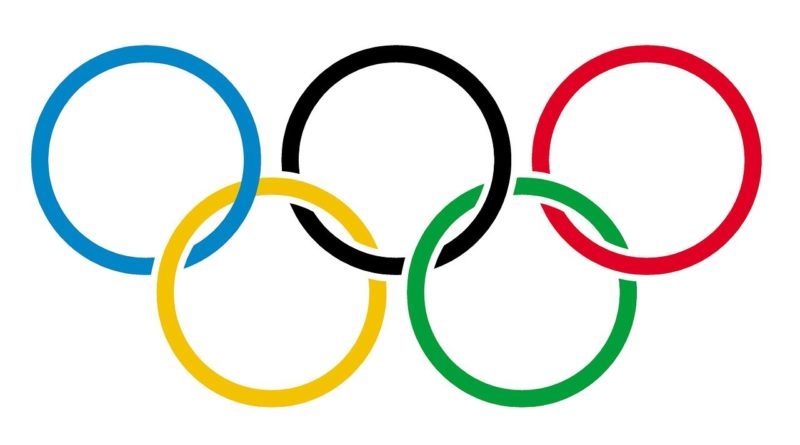Worker and Social Cooperatives for the 2024 Paris Olympic Games
26 July 2024
The 2024 edition marks a breakthrough in the history of the Olympic and Paralympic Games, with emphasis on climate and environmental issues. Worker and social cooperatives are bringing their expertise to bear on these issues.
The Olympique Delivery Authority (Solideo) and the parties involved in the construction of these infrastructures have committed to making 25% of the public contracts initially planned (in terms of financial volume) accessible to small and medium-sized enterprises (SMEs). This summer, Nicolas Ferrand, Solideo’s Managing Director, announced that this target had been exceeded: 729 million euros had been signed with 1,927 VSEs/SMEs, including 103 structures from the social economy, from 85 departments.
Emblematic works
Most of the facilities have already been built (Stade de France, Parc des Princes, Bercy, Roland Garros, Grand Palais, etc.), but work is still required, and temporary structures will be built (grandstands, competition venues, etc.). Solideo is responsible for financing, supervising and delivering these various operations. They will also be responsible for converting the sites from 2025 into facilities, housing and offices. This adaptability aims to be “ambitious, sustainable and exemplary”.
The current budget is €4.49 billion for 64 projects. The Olympic Aquatic Centre, Arena 2 and the two Olympic Villages (for the athletes and the media) are the new projects. Étamine (Vaulx-en-Velin), an environmental performance design and consultancy firm, is involved in the construction of 6 Olympic facilities, and was responsible for defining the environmental performance targets for the Olympic aquatic centre. This “low-carbon” equipped building significantly integrates bio-sourced materials and features a number of innovations (mobile docks, high-performance filtration, continuous trichloramine measurement, maximum heat and water recovery).

For part of the athletes’ village, this workers cooperative helped implement the environmental strategy and carried out the necessary studies. “It’s a major project because of its scale and the way it’s being carried out: all the buildings have the same delivery date, which means simultaneous studies, simultaneous supplies, etc.”, comments Solène Peyragrosse, Technical Director.
On the other hand, Atelier Aino (Marseille) was a hired as a subcontractor to Bouygues Bâtiment Île-de-France for Arena 2. “Our involvement in the overall project was very limited but, despite very demanding regulations, we were able to propose the use of raw earth in the public hall. These are compressed earth blocks (CEB), made from the excavated soil generated by the roadworks and carried out by the Fabrique Cycle-Terre (Sevran)”, explains Louise Dubois, Materials Manager.
Scoping (Massy), a building engineering and consultancy company, played a key role in the energy renovation of the Poissonniers sports centre and the Eaubonne sports complex (CDFAS), as well as in the construction of the athletes’ village at Île-Saint-Denis. With a focus on energy efficiency and bioclimatic design, the project includes a light-coloured roof and natural ventilation to combat summer overheating at the CDFAS. For the Poissonniers gymnasium, the workers cooperatives gave priority to re-using materials. Finally, for the Olympic Village, the transformation of the athletes’ accommodation into family housing after the 2024 Games was planned from the outset.
Atelier Reeb (Schiltigheim) has 32 years of experience specializing in green wastewater treatment. The company assisted a Parisian design office in creating a system to recycle shower water for a fire station in Saint-Denis. For Étienne Dantan, Technical Director, “This project is unusual in that it is set in an urban environment. This treatment system is being implemented on an experimental basis, with an exemption from the ARS (Regional Health Agency).”

“We worked on the land development and all the buildings and structures for the Olympic Village. Whether it’s for the Greater Paris project or the 2024 Olympic Games, Seine-Saint-Denis is undergoing major development, with the extension of trams, the rerouting of networks (electricity, water, sewerage) and Olympic structures”, comments Stanislas Choiseau, Chairman of Groupe ATGT Géomètre- Expert (Bobigny).
Innovation and investment accelerators
With their strong environmental ambitions, these Olympic facilities promote the use of new or little-used solutions. They serve as a real catalyst for scaling up and innovating, allowing the various stakeholders to utilize their knowledge and expertise fully.
“We expect raw earth to become more widely used in everyday construction projects. This mission has already helped us to a research project on the thermal performance of this material”, admits Louise Dubois from Atelier Aino. “Proud to be involved in Olympic projects, our employees are developing these buildings for future generations”, says Hayat Khatri, Scoping’s Sales and Communications Director. For Étamine, “these contracts are the large-scale implementation of innovative designs and constructions”.
“This removes barriers and leads to new collaborations”, argues Solène Peyragrosse. For Étienne Dantan of Atelier Reeb, “this collaboration could lead to other contracts for urban projects, with amounts potentially higher than our usual standards. We need to adapt to this development, which is promising”.
Story originally published in the newspaper “Particper”, produced by CGSCOP , CICOPA French member.

